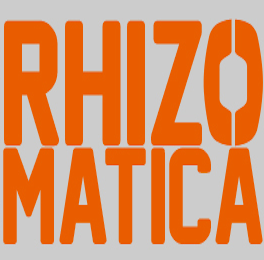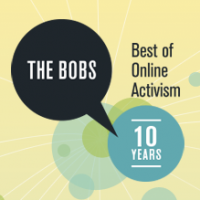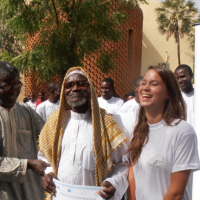This post, written by Mariana Santos and Elisa Tinsley, was originally published on the website of the International Journalists’ Network (IJNet). This post follows up on our earlier posts about Chicas Poderosas and Mariana, its founder.
Women who want to thrive at the intersection of media and technology must not be afraid to share their knowledge or to fail, because what they learn along the way is the most important thing, said Hassel Fallas Lopez, a data journalist at Costa Rica's La Nación newspaper.
Fallas spoke during the inaugural meeting of Chicas Poderosas, the first group dedicated to increasing the number of women in Latin America who work with technology in media. She also advised attendees to bring all of their passion to their work because that is what will transform it into something that has an impact.
That's just what we aimed to do with the Chicas Poderosas launch, but as we planned the workshop, we wondered, “Would journalists, designers and developers dealing with the demands of daily journalism take the time for a three-day, intensive workshop focusing on scraping, analyzing and visualizing data?”
 The answer: absolutely. More than 80 journalists from several Costa Rican news organizations attended the session in the auditorium of San Jose's La Nación newspaper. We should have realized that as with all things in this tropical country, people take a “pura vida” (“live life to the fullest”) approach. They look on the bright side and keep it cool.
The answer: absolutely. More than 80 journalists from several Costa Rican news organizations attended the session in the auditorium of San Jose's La Nación newspaper. We should have realized that as with all things in this tropical country, people take a “pura vida” (“live life to the fullest”) approach. They look on the bright side and keep it cool.
Among the coolest of the cool: Giannina Segnini, head of La Nación's investigative and data-journalism team, who has personally helped to increase the number of women working with tech in newsrooms. For the Chicas Poderosas event, she put out the word to her entire Costa Rican (Tica) Network. In just one week, more than 100 people signed up to join the Chicas Poderosas group.
They came from print, radio, TV, IT and communications companies, spending three more-than-full days. Some stayed long past the end of the official agenda. Among them: Amelia Rueda, a prominent documentary and environmental journalist also known locally as “Oprah Tica.”
The first day’s presentations by the Chicas Poderosas leaders – Segnini, the two of us and data-viz-gurus Nicola Hughes of The Times of London and Irene Ros of Bocoup – showed how journalists can use applications to find and work with data. Each showed how new technology – from JavaScript and HTML to Open Refine and Google Fusion Tables – can be used to find and analyze data.
The next two days were hands-on. The attendees, both women and men, formed teams, brainstormed and created interactive, motion-graphic and UX wireframes to share their conclusions about various data sets, offering a deeper understanding of raw data and what the data tell us about our lives. Many of the participants plan to keep working with their data and publish the products of their work at the session.
The first Chicas Poderosas workshop focused on these three skills, all critically important for any data-driven project: how to work in a multidisciplinary team; how to get data from the Internet and how to convert big data sets into visual storytelling.
In Chile, where we first introduced the idea at a Hacks/Hackers Santiago meetup in May with ICFJ Knight Fellow Miguel Paz, membership in the chapter grew by nearly 30 percent. And the number of women members of the chapter grew by 150 percent. The participants have asked Santos to return to lead a full workshop like the one in Costa Rica.
In Mexico, the week before the official Chicas launch, we introduced the idea at a conference on digital and cyber security led by ICFJ Knight Fellow Jorge Luis Sierra. Many of the participants at the conference are members of Periodistas de a Pie, a network of women journalists from across Mexico. They also are clamoring for their own chapters.
We plan chapters in Buenos Aires, Rio, Bolivia, and that’s just in 2013.
Chicas Poderosas opened minds. It empowered women by helping them to see how technology can improve their work. Most of all, it brought them together to produce something tangible.
Mariana Santos is a visual storyteller and founder of Chicas Poderosas, which she is developing as a Knight International Journalism Fellow. Elisa Tinsley is the director of the ICFJ Knight International Journalism Fellowships. Image by Margaret Looney.
You can find out more about Chicas Poderosas on their website, Facebook, and on Twitter @poderosaschicas.




2 comments